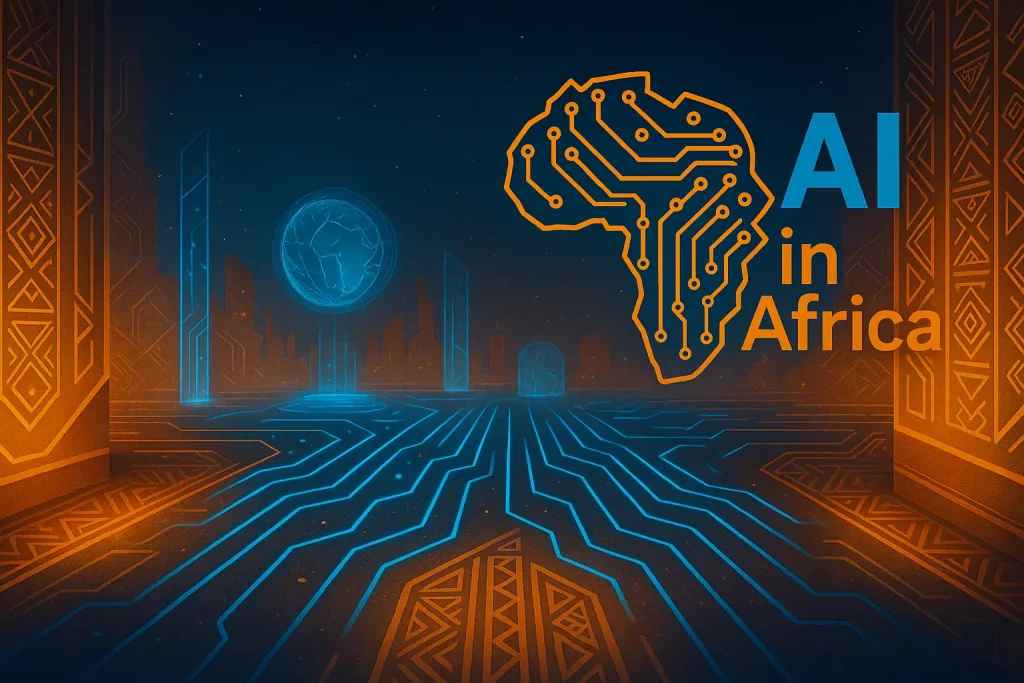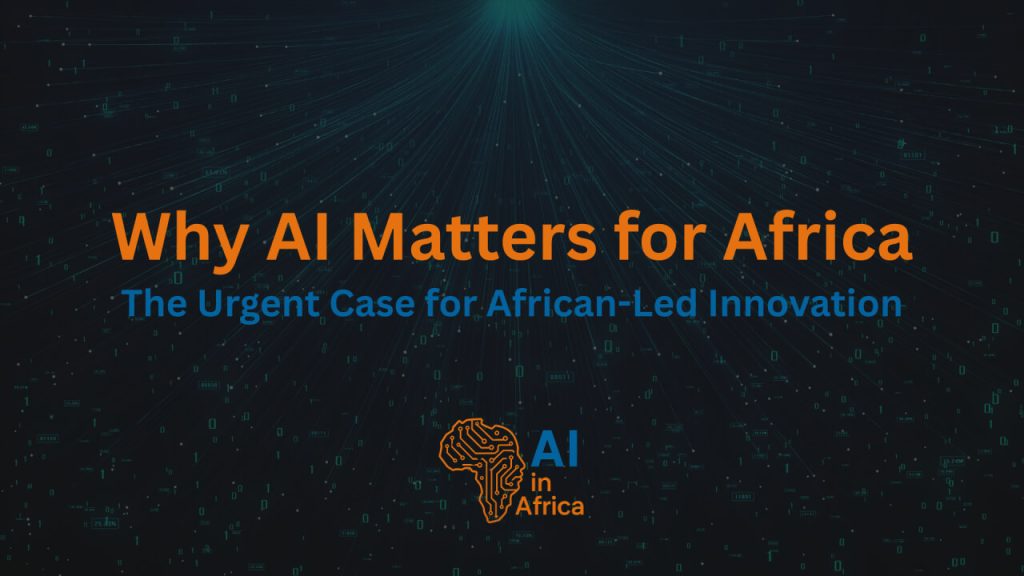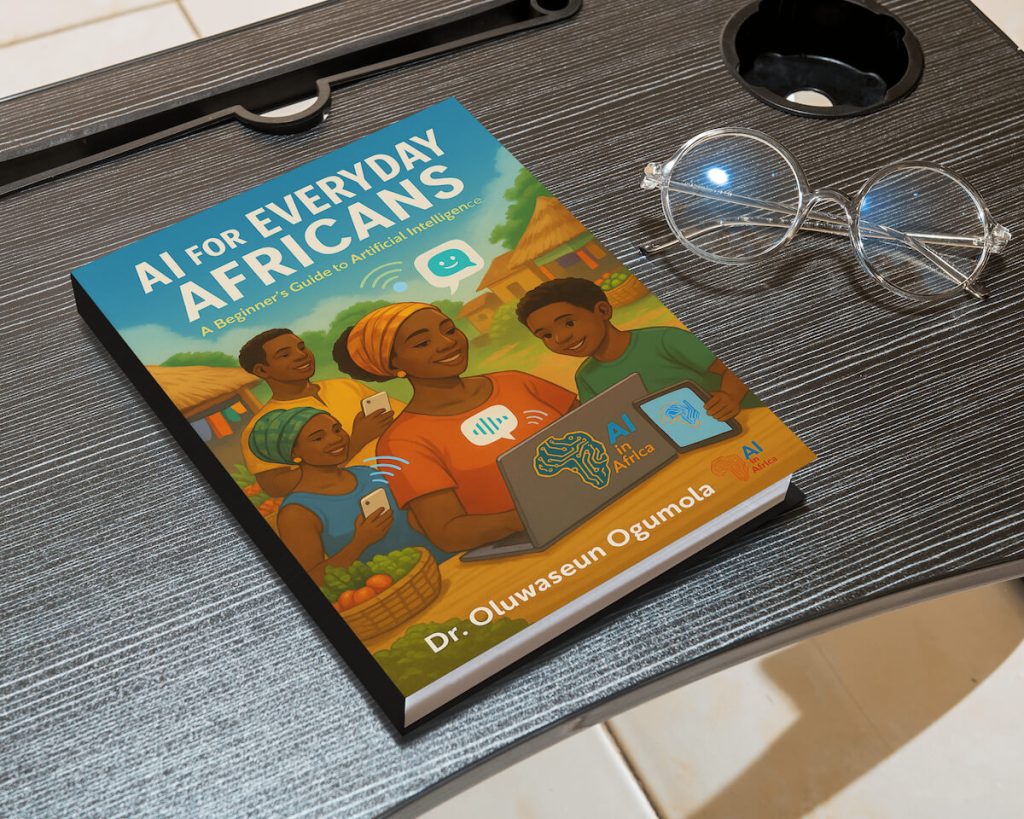Table of Contents
Introduction
Agenda 2063, the African Union’s 50-year blueprint, envisions a prosperous, integrated, and peaceful Africa driven by its own citizens.
As Africa moves towards this transformative vision, Artificial Intelligence (AI) emerges as a strategic enabler. AI is not only reshaping economies and societies worldwide, but also offers Africa unique opportunities to leapfrog traditional development pathways.
This brief highlights how investing in AI can accelerate the realization of Agenda 2063’s seven aspirations and provides policy recommendations for African governments, private sector, and civil society.
AI as a Catalyst for the 7 Aspirations of Agenda 2063
1. A Prosperous Africa (Inclusive Growth & Sustainable Development)
- Agriculture: AI-enabled precision farming, crop disease detection, and smart irrigation can eradicate hunger and modernize farming.
- Healthcare: AI in telemedicine, diagnostics, and epidemic prediction improves healthcare delivery across remote areas.
- Finance: AI-driven fintech expands access to mobile banking, microcredit, and insurance for underserved populations.
- Smart Cities & Infrastructure: AI for traffic management, clean energy distribution, and housing planning supports sustainable urbanization.
2. An Integrated Continent (Seamless Borders & Trade)
- Trade Facilitation: AI-powered customs automation and logistics optimization strengthen the Continental Free Trade Area (AfCFTA).
- Transport: Predictive maintenance and smart systems improve the Pan-African High-Speed Rail Network and aviation safety.
- Digital Integration: AI-powered language translation tools bridge communication gaps across diverse languages.
3. Good Governance, Democracy, and Human Rights
- E-Government: Chatbots and AI platforms improve public service delivery and accountability.
- Policy Analytics: AI enhances data-driven policy and budget forecasting.
- Anti-Corruption: Fraud detection algorithms strengthen transparency in procurement and financial systems.
4. Peace and Security
- Early Warning Systems: AI analyzes social media, migration patterns, and climate stress to predict conflict.
- Border & Cybersecurity: AI strengthens monitoring, defense, and intelligence analysis.
- Humanitarian Response: AI optimizes disaster relief logistics and crisis response.
5. Strong Cultural Identity, Heritage, and Values
- Language Preservation: AI supports African language translation, digital storytelling, and education.
- Creative Industries: AI tools for film, music, and design expand Africa’s cultural exports.
- Cultural Heritage: AI aids in digital archiving, 3D reconstruction, and tracking of stolen artifacts.
6. People-Driven Development (Women, Youth, Children)
- Education: AI-enabled personalized learning and digital tutoring expand access to quality education.
- Youth Innovation: AI entrepreneurship incubators drive job creation and innovation ecosystems.
- Gender Equality: AI platforms promote women’s participation in business, politics, and leadership.
7. Africa as a Global Player and Partner
- Global Competitiveness: AI-driven industries make Africa a creator, not just consumer, of innovation.
- Global Governance: Africa can lead in shaping ethical AI policies, ensuring fair global standards.
- Economic Independence: AI accelerates value addition in mining, agriculture, and manufacturing.
Policy Recommendations
For Governments
- Integrate AI strategies into national development plans aligned with Agenda 2063.
- Invest in AI infrastructure: broadband, data centers, and research hubs.
- Create regulatory frameworks for ethical AI use, data privacy, and digital rights.
- Support AI in education, from primary schools to universities.
For Private Sector
- Partner with governments to deploy AI in key sectors (health, agriculture, logistics, finance).
- Establish AI innovation hubs and incubators across Africa.
- Invest in local talent through training, mentorship, and internships.
For Civil Society & Academia
- Promote AI literacy for citizens to ensure inclusivity.
- Conduct research on AI’s impact on society, economy, and ethics in Africa.
- Advocate for women and youth participation in AI-driven economies.
Conclusion
Artificial Intelligence is not a distant technology; it is a strategic enabler for Africa’s transformation. By embracing AI, Africa can leapfrog stages of development, accelerate Agenda 2063, and position itself as a global leader in innovation, culture, and governance.
Investing in AI is investing in the Africa We Want.
Dr. Oluwaseun Ogunmola




